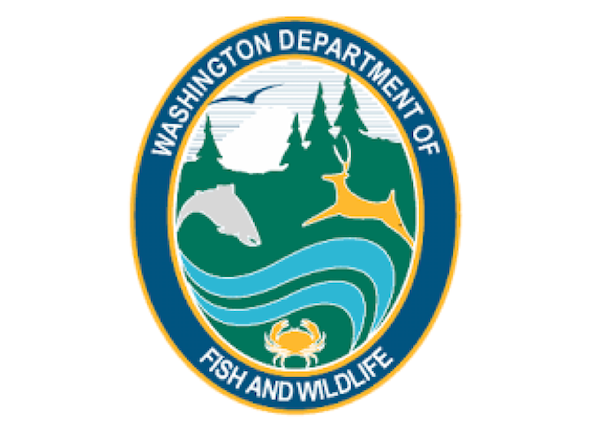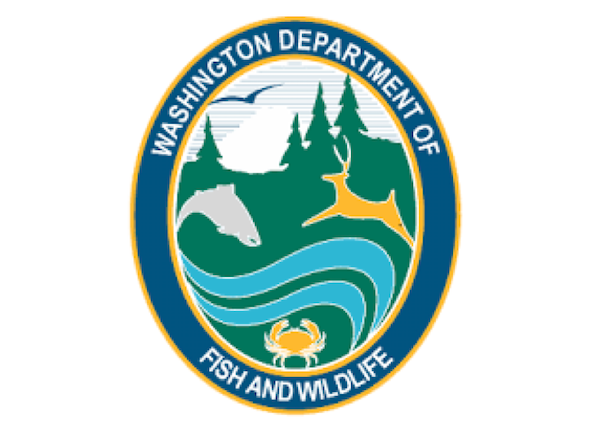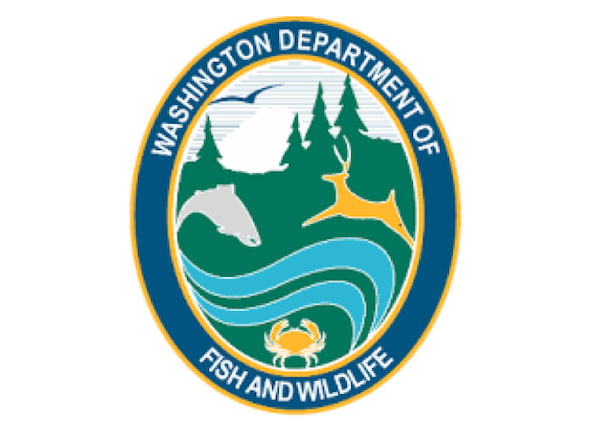Idaho Fish Report
Forecasts released for 2021 as annual salmon season-setting process begins

by WA Department of Fish & Wildlife Staff
2-26-2021
Website
OLYMPIA – Washington salmon seasons are likely to once again be limited by low returns with a few potential bright spots in 2021, state fishery managers announced today at a meeting to present salmon forecasts for the coming year.
Cooperatively developed by the Washington Department of Fish and Wildlife (WDFW) and co-managers, the forecasts mark the jumping-off point for the annual “North of Falcon” process to shape Washington’s salmon-fishing seasons. The forecasts cover expected returns of Chinook, coho, sockeye, pink, and chum salmon in Puget Sound, the Columbia River, and Washington coastal areas.
A series of public meetings is scheduled through early April to help develop tentative fishing seasons for the upcoming year. North of Falcon is just one part of a larger process involving the state, tribal governments, federal regulators, other U.S. states, and Canada.
As always in years when many runs are expected to come in below average, fishery managers will be required to make some tough choices on what fisheries can open and when, said WDFW Director Kelly Susewind, who is tasked with guiding the department in its mission to preserve, protect, and perpetuate fish on behalf of state residents, while still providing sustainable fishing opportunities.
"If every salmon run across the state was healthy, our jobs would be easy," Susewind said. "But the unfortunate truth is that some stocks just won’t be able to support fisheries, and are likely to impact fisheries even for healthier runs. We’ll work hard alongside the co-managers to stay within our shared conservation goals while still offering chances to get out and fish this year whenever possible."
The forecasts are based on scientific modeling and a variety of data including environmental indicators such as ocean conditions, numbers of juvenile salmon that migrated to marine waters, and numbers of adult salmon that returned in past years.
The following are summaries of this year’s forecasts, which vary by area:
Columbia River: About 354,200 "upriver brights" are expected to return to areas of the Columbia River above Bonneville Dam, a sizeable increase over the 299,300 fish that returned in 2020, but still below the 10-year average.
Coho runs, meanwhile, offer some optimism: nearly 1.6 million early and late Columbia River coho are projected to be available for this year’s ocean and Columbia River fisheries, which would represent a marked increase from last year’s return of approximately 363,000 fish.
Despite the big number, fishery managers will set seasons carefully in order to not over-impact other limiting stocks, and will adjust fisheries as necessary, according to Kyle Adicks, intergovernmental salmon manager for WDFW.
"All of our forecasting indicates a strong coho return to the Columbia, but a lot can change between now and when fish start to arrive, including out in the ocean," Adicks said. “We’ll be keeping a close eye throughout this year’s salmon season setting process on stocks of low abundance.”
Coho fishing could also be impacted if other stocks come in at low numbers, potentially restricting fishing access in specific areas even if coho numbers are strong.
Sockeye returns are forecast to be down significantly to 155,600, compared to last year’s strong return of 345,018 to the Columbia.
Washington's ocean waters: Coho returns are more of a mixed bag out on the Washington coast, where projected returns are 241,800 fish, down from last year’s 255,605. Willapa Bay numbers are up slightly, while Grays Harbor numbers are down, and most coastal rivers are also expected to also see declines. Poor expected returns of coho to coastal rivers like the Queets River will limit ocean fishing opportunities in spite of the expected strong return of coho to the Columbia River.
About 73,100 hatchery Chinook are expected to return to the lower Columbia River this year, similar to last year’s actual return. These fish are known as “tules” and make up a sizeable portion of the recreational ocean fishery. The 2020 return came in above forecast, but still only about 85 percent of the 10-year average.
Puget Sound: Pink salmon return to Puget Sound in odd-numbered years, and more than 2.9 million wild pinks are expected to arrive in 2021, similar to the 2019 run. Fishery managers expect some opportunity for anglers to take part in that popular fishery.
Coho returns to Puget Sound and surrounding rivers are mostly forecast to be up in 2021 over the previous year, at about 615,000 wild and hatchery coho. About 504,600 fish returned in 2020. The middle and south Sound areas in particular are expected to see an increase of more than 45,000 fish. Fishery managers will consider wild coho returns to rivers like the Snohomish, which is in rebuilding status after experiencing low escapements in recent years, in planning fisheries throughout marine waters.
Puget Sound Chinook and chum, however, are once again expected to experience a down year. As has been the case in other recent years, Adicks said that low returns of some stocks – particularly Stillaguamish and mid-Hood Canal Chinook – are likely to hinder fisheries in the region.
Public meetings and feedback opportunities
Information about the salmon season-setting process, including public meeting schedules and materials, are available on WDFW's website at https://wdfw.wa.gov/fishing/management/north-falcon.
Due to COVID-19, all meetings are being conducted virtually in 2021. Members of the public can participate in these meetings by calling in or logging on from a computer or smartphone. There will also be opportunities to submit public comment at these meetings, or online beginning in early March.
Upcoming meetings include:
Ocean fishing seasons: State, tribal, and federal fishery managers will meet virtually with the Pacific Fishery Management Council (PFMC) March 2-5 and 8-11 to develop options for the year's commercial and recreational ocean Chinook and coho salmon fisheries. The PFMC establishes fishing seasons in ocean waters 3 to 200 miles off the Pacific coast.
Regional fishing seasons: The public is invited to join WDFW at online public meetings throughout March and into April to discuss coastal and regional fishery issues and preferences for Puget Sound and Columbia River. Meetings offer opportunities for public comment, which fisheries managers use to help inform non-tribal fishing seasons.
Final PFMC: The PFMC is expected to adopt final ocean fishing seasons and regional harvest levels for the western seaboard at a virtual meeting spanning April 6-9 and 12-15. State and tribal co-managers will set a tentative 2021 salmon fisheries package for Washington's inside waters.


